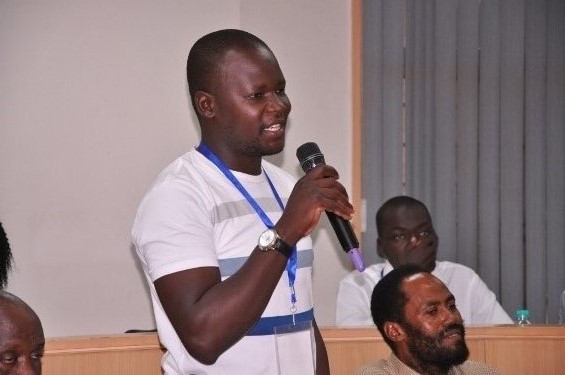05 Mar 2018|Noida | F1 MDP Room
“3rd Indo African International Training Programme” on “Entrepreneurship Development in Plant Tissue Culture for African Candidates”

Sir Richard Roberts Centre for Genetically Modified Organisms, Amity University Uttar Pradesh in association with Biotech Consortium India Ltd. (BCIL), New Delhi and Ministry of External Affairs (MEA) started five day “3rd Indo African International Training Programme” on “Entrepreneurship Development in Plant Tissue Culture for African Candidates” at University Campus, Sector 125 Noida.
The training programme has witnessed the participation of 15 delegates from 6 African Countries including Kenya, Yuganda, Tanzania, Nigeria, Zambia and Chad.
Inaugurating the training programme, Dr Shiv Kant Shukla, DGM, Biotech Consortium India Ltd (BCIL) presented a brief background and objective of the training program which is to address entrepreneurial development in agricultural field. He shared that since the inception of programme since January 2017, 109 participants from 22 African Countries have been trained on Plant Tissue Culture and the vision is to train more than 270 African delegates by year 2020. He apprised that during the five day training programme, eminent Scientists and Researchers will give lectures and provide hands on practical training. He remarked that the programme aims at replicating the success of Tissue culture in African countries. Dr. Shukla briefed about BCIL which has witnessed the evolution of Biotechnology in India by initiating projects of National and International significance.
Addressing the gathering, Dr. (Prof.) Balvinder Shukla, Vice Chancellor, Amity University Uttar Pradesh said that agriculture, horticulture and other related areas define the growth of a country and it is necessary to focus on food quality and production to be a self-sustained country. Dr. Shukla emphasized that together, Asia and Africa can eradicate poverty and world hunger through collaborative research and exchange of technological knowledge. She stressed that the training aims at encouraging the participants towards entrepreneurial development in the field since entrepreneurship is important for economic development of any Nation.
Speaking on the occasion, Dr. Abha Agnihotri, Profession, Amity Institute of Microbial Technology stressed that nutritional security has become a huge challenge at global level. She apprised that many technologies have been invented to boost food production. However, there is a need for scientists to collaborate with farmers to understand the challenges and research for a viable solution. Lamenting the opposition of people against many scientific advancements like Genetically Modified Organisms (GMOs), Dr. Agnihotri pointed out that many people believe that GMOs are bad for their health and that they damage the environment. On the contrary, she stressed that there has been overwhelming scientific evidence that proves the safety of GMOs for human consumption and environment by making agriculture more sustainable. Dwelling on Sir Richard Roberts Centre for Genetically Modified Organisms, Amity University, Dr. Agnihotri shared that the Centre was launched by Dr. Ashok K Chauhan and Sir Richard Robert with aim to ensure food and nutrition security through research and promotion of GMOs in India and abroad by reducing detrimental effects of agriculture using GM Technologies which are based on Tissue culture.
Mr. George Otieno, Participant from Kenya Agriculture Research Organization expressed his hope that the five day training will help him incorporate the Tissue Culture technique to improve sugarcane production in the country.
The training programme commenced with a lecture on “Key steps of Micro Propagation and importance of implementing SOPs in commercial operation” by Dr. Shiv Kant Shukla followed by hands on training on ‘Sterilization techniques and Stock Preparation’.